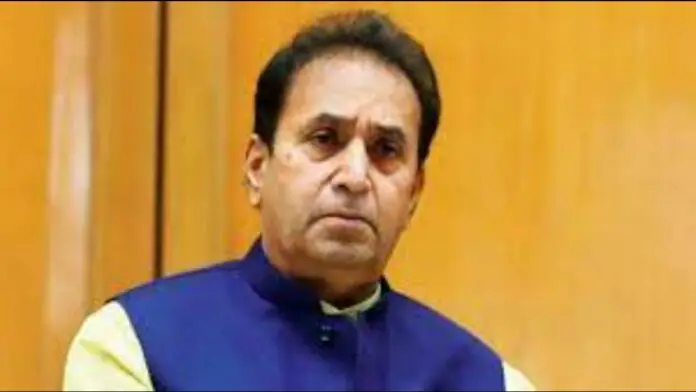
The Bombay High Court overturned a judgement of the Mumbai Sessions Court that had denied the Enforcement Directorate’s (ED) request to extend the custody of former Maharashtra Home Minister Anil Deshmukh in the money laundering case against him.
Deshmukh’s ED custody has been extended to November 12, 2021, by vacation court Justice Madhav Jamdar.
ED’s request for an extension of custody was denied by Additional Sessions Judge PR Sitre yesterday, and Deshmukh was placed in judicial custody for 14 days.
The ED claimed in its 32-page revision application that Deshmukh refused to cooperate during the interview and gave evasive answers to the investigating officer’s questions. Because of the scope of the fraud and the importance of the issues involved, the ED requested an additional 9-day remand. The ED argued that a money-laundering investigation cannot be anticipated to be finished in a short period of time. “The investigating agency must be given the opportunity to explore the complete extent of the issue so that it can collect sufficient quality evidence to help the agency get to the bottom of the situation.” the petition added.
The ED informed the High Court that only 5-day custody had been allowed to them for “investigating such an issue involving crores of dollars,” two of which were Diwali holidays.
The Sessions Court should have noted that money was flowing from 13 companies indirectly held by Deshmukh to 11 companies directly owned by Deshmukh, according to the central agency. The plea noted, “Holiday Sessions Judge ought to have realised that shell corporations were employed to stack the Proceeds of Crime.” Deshmukh’s counsel’s contention that the grounds for remand were comparable was erroneous, according to ED, because ED had added more grounds after the custodial interview. After investigating the other suspects in the case, the ED requested an extension of custody to confront Deshmukh.
Anil Deshmukh’s attorney conceded the request for ED custody without commenting on the application’s maintainability. He stated that he was willing to undergo a four-day detention probe. Deshmukh argued that, in light of the statement, the contested order might be quashed and set aside by consent, and that no detailed grounds should be issued. As a result, Justice Jamdar overturned the Sessions Court ruling and ordered Deshmukh to remain in ED custody until November 12, 2021. Before signing the ruling, Justice Jamdar made some observations on the case’s merits and maintainability, while emphasising that these issues had not been debated in light of Deshmukh counsel’s assent. Justice Jamdar based his decision on the maintainability of the revision application on a Gujarat High Court decision from 2012. According to the Gujarat High Court, a decision refusing to issue police remand is a definitive ruling, and a reconsideration of that order is not possible.” An order refusing to grant remand has direct bearing on the trial’s processes and will almost certainly have an impact on the case’s eventual outcome.” the court reasoned.
After the Central Bureau of Investigation (CBI) filed a first information report (FIR) following a court-ordered investigation into charges of corruption and misuse of his official position, the ED launched an investigation into Deshmukh and his accomplices. Deshmukh had received five summonses from the ED, to which he responded by requesting permission to attend the interrogation through his legal counsel. Deshmukh has disobeyed all of the summonses. Simultaneously, Deshmukh challenged the summons in the Bombay High Court, which dismissed his appeal on Friday and directed him to follow the necessary measures to seek anticipatory bail from the courts.
On Monday, November 1, Deshmukh appeared before ED authorities. Deshmukh was arrested after a 12-hour interrogation on Tuesday after midnight. Deshmukh’s custody was then granted to the ED by a Mumbai court until November 6, 2021. The Sessions Judge, however, denied the request for an extension of custody yesterday, prompting the current appeal to the Bombay High Court. ED was represented by Additional Solicitor General Anil Singh and Advocate Shreeram Shirsat. Deshmukh was represented by Senior Advocate Vikram Chaudhari and Advocates Aniket Nikam and Inderpal Singh. Deshmukh’s attorney argued that, while he may argue against the maintainability of the current application as well as the merits of the case, he is making the aforementioned remark on instructions.








